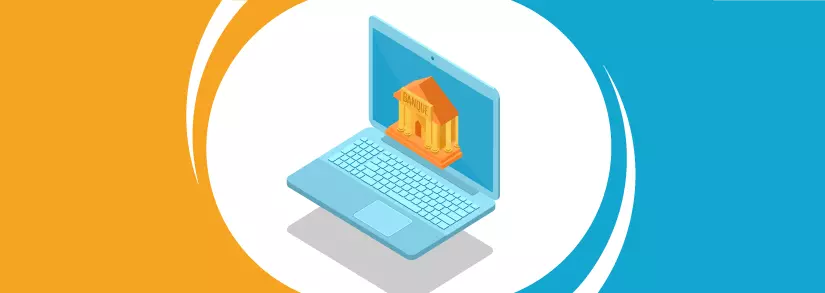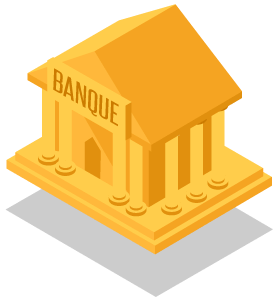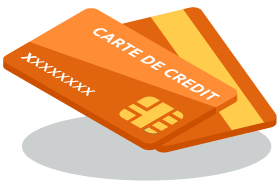How to Open a Bank Account in France: A Step-by-Step Guide

Want to subscribe to a French energy offer?
Our English-speaking Selectra advisors are here to help you find the right energy plan.
(foreign IBANs accepted) at [email protected]. You can contact us also:

Getting a French bank account set up will be one of your top priorities upon moving to France. Whether you're staying there for your studies, your work or your retirement, having a compte bancaire will make your life a lot easier, and avoid you being charged fees everytime you do your shopping.
This guide will help you find out what you need to know and do in order to set up a bank account in France.
Do I need to open a bank account in France?

This is the first thing you need to determine. You are under no obligation to open a French account and you can definitely live in France without having one, especially if you aren't planning on staying in France long-term.
This said, if you are going to be in France for a while (say, 6 months or more), setting up a French bank account will make your day-to-day life and finances a lot easier, and cheaper. Indeed, if you are coming from the UK or the US, chances are you will be charged a fee (a small one, but this can add up overtime) everytime you use your home bank card to make transactions in euros.
What's more, you will be required to own a French bank account in some instances, such as to pay utility and phone bills, receiving your salary, as well as obtaining a French mortgage.
Am I elegible to open a French bank account?
This is another important question to ask yourself. As a foreigner, if you are over 18, you have every right to open an account in France, just as French people do, but some conditions apply and you have to prove your situation is stable and within the law.
In most cases, a French bank will ask you to be able to provide the following:

- A valid ID document: passport or ID Card
- Proof that you live in France: you can submit a utility bill no more than 3 months old in this case.
- Proof that you are allowed to be living in France (if applicable): you will need to show either your resident permit or your long term visa.
- Proof of income: not always the case, but in some instances you will need to show that you have revenues in France
- An initial deposit: some banks ask that you make a deposit of typically a few hundred euros into your new account.
- Proof of taxation from your home country: your tax identification number will suffice here. It is a unique taxpayer reference that appears on all letters or documents sent to you by your home country tax authority.
What type of account do I need?
The most common account in France is the current account, or compte courant, but you have other options, too.
- As mentioned, the Compte courant is the standard French bank account via which you can mange you finances, pay your bills and shopping, etc. Funds are easy to access. Depending on your bank, you may be able to set up an account specific to your situation, such as a student bank account, a non-resident account, etc.
- The Livret is a general savings account, in which you can place funds that you aren't planning to use on the short term. These remain easy to access, though, and you can always transfer funds to and from this account to your current account and vice-versa.
- Finally, the Compte à Terme, the equivalent of a long-term savings account, is a higher interest account which is used to save up funds, in order for expensive purchases such as a car or a house.
Which French bank should I choose?
There is no shortage of banking establishments in France. The one right for you is completely dependent on what factors matters most to you, such as cost, services included, etc. Below is a list of questions we recommend that you ask yourself before setting for a bank.
- What costs can I expect to pay? You should be made aware of all the costs attached to opening and maintaining your account open. These could be fees monthly fees for the bank card, annual bank management fees (be careful as these might be free the first year, but become high the second year), money transfers to a foreign account, etc.
- How easily can I get help if needed? Find out whether the customer service is online-based only, or also phone, post and in-person based, too, as well as how responsive you can expect the customer service to be. Some banks also come with a mobile app, which can be a nice perk as it enables you to access your account 24/7 from your smartphone.
- Is customer service offered in English? This isn't automatic, especially in small and regional banks. If this is important to you, then go for an international bank such as HSBC, or an online bank, such as N26.
- What services can I get access to? Make sure you know what's on offer, depending on what matters to you (international money transfers, a premium bank card, a pension savings plan...)
- What currency conversion rates are appliedSome banks can apply significant fees to currency conversions.
- Am I allowed overdraft - and if so, what is the limit? Make sure you find this out if you think you may need to have this option, as well as what fees are applied if you go over the limit.
Here is a selection of banks on the French market, which are accessible to expats, foreign students and any one else who have moved to France:
| Bank | For more info | Main characteristics |
|---|---|---|

N26 |
More info on N26 |
|

HSBC |
More info on HSBC |
|

Société Générale |
More info on Societe Generale |
|

Boursorama Banque |
More info on Boursorama |
|

Nickel |
More info on Nickel |
|
None of the above banks require you to meet a certain level of income, or to make a hefty initial payment into the account as is the case with other banks.
You can also find guidance in this guide which compares online banks in France (in French).
How do I open a bank account?
Here is how, whether you proceed remotely or in store.
Can I open a French bank account from abroad?
Yes! At least, with some banks. HSBC will allow you to do this, as will all French online banks, obviously. You will simply need to fill out the online application of your bank of choice and upload a scanned version of the required documents. In most cases, you will then be asked to make an initial payment into your new account, in order to activate your balance.
You should receive both your new bank card and associated PIN via mail shortly after.
If you aren't yet fluent in French yet, or want to open an French account from abroad, we recommend HSBC. It provides all its services in English, and allows you to apply online.
Opening an account in a French bank branch

If the bank you have chosen doesn't enable you to sign up online, then the alterative is to go to a physical branch once you arrive in France. Most traditional French banks have plenty of establishments nationwide, so you shouldn't struggle too much to find one local to you. Opening times are typically 9am to 5pm on weekdays, and 9am to noon on Saturdays.
If you aren't yet confident speaking and understanding French, we advise you to bring a French friend, relative or colleague with you, just so you can be at ease with the T&Cs attached to the account, and are at ease with any contracts you will be signing.
Always double check which documents you need to bring to the bank. In some cases, documents need to be translated or even notarised, so you will need to allow time to get these extra changes done.
Upon opening your account, you will also receive your own French IBAN, which you will need to make payments from one account to another.